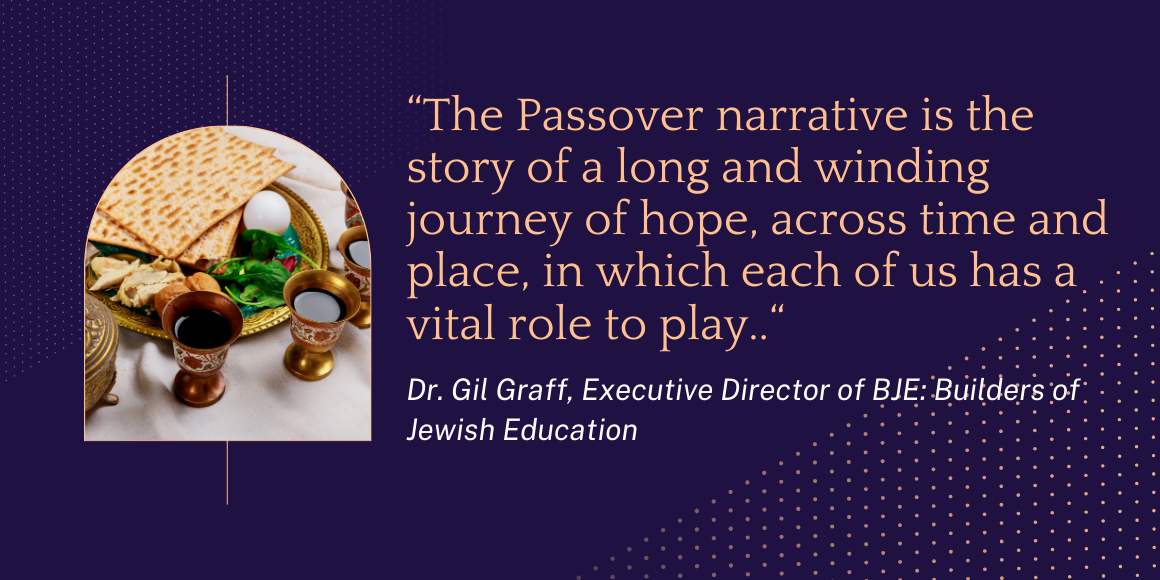
The Passover Narrative: A Continuing Journey of Hope
“History,” writes Jonathan Sacks, “is like a journey, with a starting point and a destination, or like book with a beginning and middle and distantly glimpsed end.” Endowed with free will, human beings are “co-authors in writing the script of history.” In connection with that script, Yitz Greenberg describes the narrative of the exodus as “an ‘orienting event’…that sets in motion and guides the Jewish way (and, ultimately, humanity’s way) toward the Promised Land – an earth set free and perfected.”
The journey toward a perfected world is, by no means, linear. There are twists and turns along the way. However, as Jonathan Sacks reminds us, Jewish time “is the supreme narrative of hope.”
This year, the approach of Passover comes more than six months into a devastating war precipitated by the brutal invasion of Israel – on another Jewish holiday -- by forces of a neighboring, terrorist regime. One cannot, this Pesach, think of the words in the Haggadah “in every generation they rise against us to destroy us” without recalling the events of October 7 and, more recently, the missiles and drones launched by Iran to wreak destruction on Israel.
The message of Passover, however, is not about destruction, but about redemption. Given free will and human co-authorship of history, humankind is not secure from the misuse of freedom. Yet, notes Rabbi Sacks: “With God’s help and that of the people with whom we are bound in covenant, we can change the world.” Judaism is a call to action; in the words of Abraham Joshua Heschel: “Judaism stands and falls with the idea of the absolute relevance of human deeds.”
Liberation from Egypt is not merely about freedom from enslavement. It is about the freedom to lead lives of purpose, contributing to the vision of a perfected world. In the spirit of dayenu (“it would have been enough”), a popular song at the Passover seder, we do well to appreciate each positive step forward in our continuing, collective journey.
The Passover narrative is the story of a long and winding journey of hope, across time and place, in which each of us has a vital role to play. The Talmud records, “Rabbi Joshua said: ‘In Nissan (the month in which we celebrate Passover) our ancestors’ slavery in Egypt ceased, and they were redeemed; in Nissan, we will, in the future, be redeemed.’” May each of us contribute to the realization of that vision, during this month of redemption. Chag sameach; best wishes for a meaningful and memorable Pesach.
